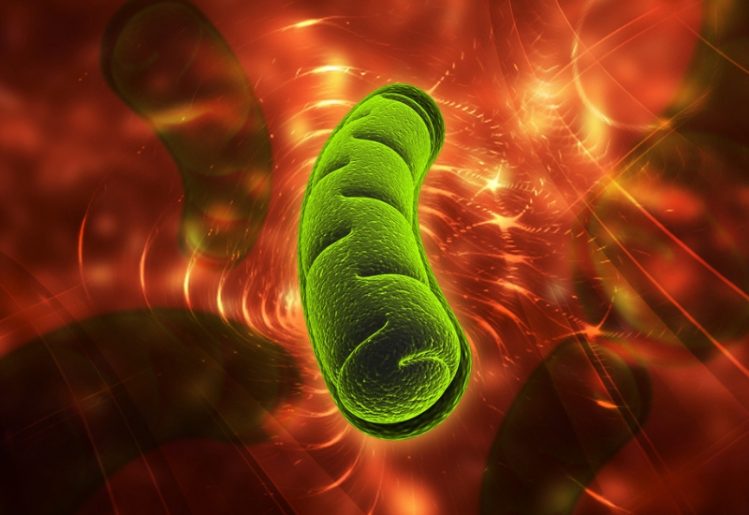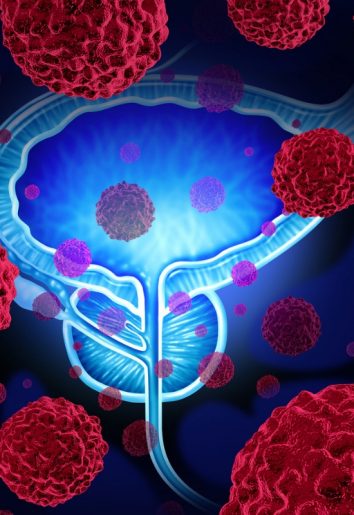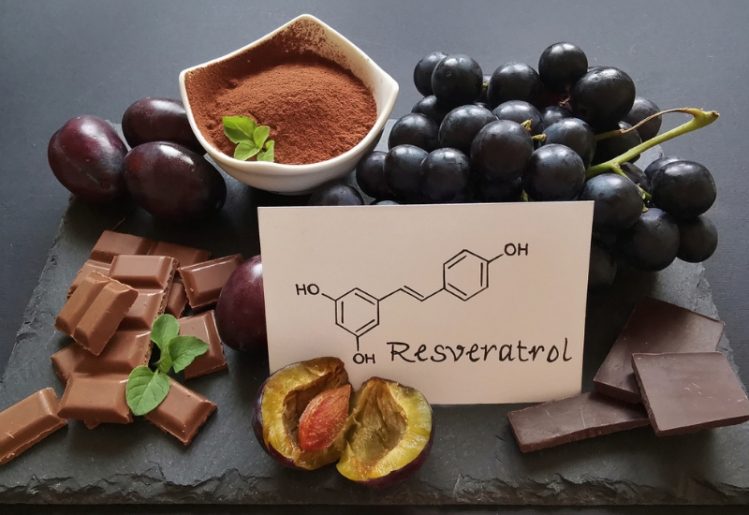In recent years, there has been a slew of new findings that demonstrate the link between mitochondrial function and stress and anxiety. Understanding the scientific tenets of mental health issues and learning more about mitochondrial function can help you to understand how boosting the health of your mitochondria may help reduce the risk of developing a serious anxiety disorder.
Understanding the Complexities of Anxiety
 It is normal to experience anxiety at various times of your life. While a certain level of anxiety is healthy, it can quickly spiral into a serious medical disorder. It can often be challenging to distinguish between typical feelings of anxiety and an anxiety disorder that can become debilitating if not treated correctly.
It is normal to experience anxiety at various times of your life. While a certain level of anxiety is healthy, it can quickly spiral into a serious medical disorder. It can often be challenging to distinguish between typical feelings of anxiety and an anxiety disorder that can become debilitating if not treated correctly.
Healthy anxiety is often the result of an acute event or worrisome trigger. However, severe anxiety is defined as anxious feelings that are vastly out of proportion to a normal stressor. When the level of anxiety does not match the event triggering it, you may be dealing with a mental health issue which may be diagnosed as a serious problem that necessitates medical intervention.
Common Symptoms and Causes of Anxiety
Severe anxiety can present itself in a variety of ways. Some of the most common symptoms include increased blood pressure, nausea, rapid heart rate and the inability to participate in everyday life functions. Those individuals with generalized anxiety disorder may also have difficulties sleeping and concentrating on tasks.
It can be difficult to pinpoint the exact causes anxiety. It is also possible for numerous factors to work together to lead to anxiety disorder. Individuals with anxiety often have a genetic disposition to developing the disorder. Environmental stressors, such as work issues and family problems, may also cause an anxiety disorder to develop. Other causes include medical factors, problems with brain chemistry and withdrawals from addictive substances. If anxiety is negatively affecting your life, it is important that you seek the help of a trained medical professional to address the issue.
What are Mitochondria and Why Are They Essential?
In order to fully understand the relationship between anxiety and mitochondrial function, you need to know more about mitochondria and their function in relation to overall health. Known as the cells’ powerhouses, the primary function of the mitochondria is to turn food into energy that the cells can harness and use. In addition to providing crucial energy, mitochondria also decide when old and malfunctioning cells should be destroyed. Mitochondria also absorb calcium ions and release them to the body when needed.
Your cells’ mitochondria will gradually start to deteriorate as you age. Malfunctioning mitochondria have been demonstrated to be contributing factors to a variety of health issues, including diabetes, heart disease, Alzheimer’s disease and Parkinson’s disease. Mitochondria that are not functioning at optimal levels may also cause extreme fatigue and muscle weakness.
Are Stress and Anxiety Linked to Mitochondrial Function?
A recent study has found that the cells’ mitochondria may also affect an individual’s risk of developing anxiety as well as susceptibility to stress. In the study, two strains of mice — one of which was genetically more resilient to stress and another that was less resilient — were subjected to stressful stimuli for ten days.
At the end of the study, noticeable changes in protein levels and gene expression were observed in both groups of mice in the BNST (bed nucleus of the stria terminalis), a portion of the brain linked to stress-related mental health conditions. Specifically, in the strain of mice who were more susceptible to stress, certain genes were expressed at lower levels, while in the stress-resistant mice, those same genes were expressed at higher levels. The genes in question happened to be intrinsically linked to mitochondrial function.
Another human study examined 21 participants who suffered from panic disorder. Researchers triggered panic attacks in the participants, drawing blood prior to the panic attack, one hour after the panic attack and 24 hours later. Upon examining gene expression in each of the blood samples, they noted mitochondria-associated changes similar to the mice who were susceptible to stress; namely, a reduction in the level of certain mitochondrial genes.
This suggests that a lower expression of these important mitochondrial genes just may be one of the biological mechanisms behind stress-related anxiety.
How You Can Support Mitochondrial Health
Whether or not you currently experience a higher susceptibility to stress or anxiety symptoms, the good news is that there are a number of ways that you can boost overall mitochondrial health.
Get Moving
Like most health issues, a regular exercise routine can go a long way in helping you to support optimal body function. Physical activity is an exceptional way to boost mitochondrial biogenesis in muscles as they grow older. This will help to mitigate the risks of age-related decline in the mitochondria, improving overall muscle health and function.
Rest and Relaxation
Getting adequate rest assists the brain in keeping mitochondrial functioning at optimal levels by ridding toxic by-products that may prove harmful to the cells. In addition, being mindful about practicing relaxation techniques, such as yoga, meditation and breathing exercises, will also help to improve mitochondrial health.
Calorie Restriction
Medical care providers have found the most success in enhancing the longevity of mitochondria through the process of caloric restriction. Fasting diets trigger the mitochondria to adapt in ways that encourage healthy mitochondrial function on many levels.
Soak Up the Sun
 Although you want to take care to protect yourself from the sun’s harmful UV rays, a healthy amount of vitamin D will support the mitochondrial oxidative capacity in the body’s muscles.
Although you want to take care to protect yourself from the sun’s harmful UV rays, a healthy amount of vitamin D will support the mitochondrial oxidative capacity in the body’s muscles.
Nourish the Body
There are also a host of nutrients that may encourage superior mitochondrial function by enhancing the cellular antioxidant defenses and guarding against oxidation. Nutrients that support healthy mitochondria include the family of B vitamins, creatine and various minerals and polyphenols.
Supplements Targeting Mitochondrial Function
In addition to the above lifestyle changes, there are also supplements that you can take to support healthy mitochondrial function. Supplements like Mitochron supply the mitochondria with crucial enzymes and vitamins that help to guard against burnout while also protecting against cellular oxidative damage.
While the exact connection between mitochondrial health, stress and anxiety is still unclear, understanding what research has already demonstrated can go a long way in helping you to support healthy mitochondrial function for better mental health.
 Accounting for approximately 20 percent of an individual’s body weight
Accounting for approximately 20 percent of an individual’s body weight There are a number of steps that you can take to heal mitochondria or prevent future issues. Like most health issues, getting enough sleep, eating well, engaging in regular exercise and being diligent about reducing stressors in your life will all help to heal these damaged mitochondria.
There are a number of steps that you can take to heal mitochondria or prevent future issues. Like most health issues, getting enough sleep, eating well, engaging in regular exercise and being diligent about reducing stressors in your life will all help to heal these damaged mitochondria. Overall, prostate cancer is a widespread problem: As the American Cancer Society reports, there were 174,650 new cases in 2019. A total of 31,620 deaths were also attributed to prostate cancer last year. While advanced prostate cancer can be fatal, getting an early diagnosis will improve the effectiveness of treatment. When diagnosed early enough, standard treatments such as surgery, chemotherapy and radiation therapy are effective in eradicating this type of cancer.
Overall, prostate cancer is a widespread problem: As the American Cancer Society reports, there were 174,650 new cases in 2019. A total of 31,620 deaths were also attributed to prostate cancer last year. While advanced prostate cancer can be fatal, getting an early diagnosis will improve the effectiveness of treatment. When diagnosed early enough, standard treatments such as surgery, chemotherapy and radiation therapy are effective in eradicating this type of cancer. While eating more red foods may boost your resistance to prostate cancer, all plant-based foods can help. By eating a broad range of fruits and vegetables, you’ll be giving your body
While eating more red foods may boost your resistance to prostate cancer, all plant-based foods can help. By eating a broad range of fruits and vegetables, you’ll be giving your body  Originating in South India, bitter melon was first imported by China in the 1300s and, as it gained popularity, was highly exported to Africa and parts of the Caribbean. The food is particularly bitter, which is how it gets its name, and for that reason has become a staple food in Asian cuisine.
Originating in South India, bitter melon was first imported by China in the 1300s and, as it gained popularity, was highly exported to Africa and parts of the Caribbean. The food is particularly bitter, which is how it gets its name, and for that reason has become a staple food in Asian cuisine. Finally, bitter melon can
Finally, bitter melon can  Aside from the protective role it plays in grape plants, resveratrol contains antioxidants that are also extremely beneficial to human health. The high content of resveratrol in red wine delivers powerful antioxidants into the blood supply, which help to protect against free radicals in the body.
Aside from the protective role it plays in grape plants, resveratrol contains antioxidants that are also extremely beneficial to human health. The high content of resveratrol in red wine delivers powerful antioxidants into the blood supply, which help to protect against free radicals in the body. As we get older, we become more susceptible to conditions that can affect our ability to see well. Partial or complete vision loss can result from glaucoma, diabetic retinopathy, cataracts or macular degeneration. Since the antioxidants in red wine help to protect against oxidative stress, the inflammation that increases the risks of developing these conditions is also reduced. While it’s necessary to take other steps to protect your vision, moderate red wine consumption can also help.
As we get older, we become more susceptible to conditions that can affect our ability to see well. Partial or complete vision loss can result from glaucoma, diabetic retinopathy, cataracts or macular degeneration. Since the antioxidants in red wine help to protect against oxidative stress, the inflammation that increases the risks of developing these conditions is also reduced. While it’s necessary to take other steps to protect your vision, moderate red wine consumption can also help. Reservatrol is found naturally in red grapes, red wine, peanuts, pistachios, blueberries, raspberries and dark chocolate. The compound is most highly concentrated in the skin of red grapes. This polyphenol antioxidant is an antimicrobial compound produced by plants to protect against environmental challenges such as harsh climate changes and too much dangerous ultraviolet light. In recent years, researchers have discovered promising ways that resveratrol may slow down the aging process, as it offers the body a multitude of protections.
Reservatrol is found naturally in red grapes, red wine, peanuts, pistachios, blueberries, raspberries and dark chocolate. The compound is most highly concentrated in the skin of red grapes. This polyphenol antioxidant is an antimicrobial compound produced by plants to protect against environmental challenges such as harsh climate changes and too much dangerous ultraviolet light. In recent years, researchers have discovered promising ways that resveratrol may slow down the aging process, as it offers the body a multitude of protections. With so many benefits spread across many facets of physical and mental health, resveratrol deserves a prominent spot in everyone’s daily diet. Because many Western diets do not naturally include this compound, you may have to be purposeful about consuming it; you can find a high-quality resveratrol supplement online or at your local health food store.
With so many benefits spread across many facets of physical and mental health, resveratrol deserves a prominent spot in everyone’s daily diet. Because many Western diets do not naturally include this compound, you may have to be purposeful about consuming it; you can find a high-quality resveratrol supplement online or at your local health food store.